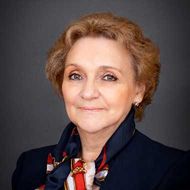- A
- A
- A
- ABC
- ABC
- ABC
- А
- А
- А
- А
- А
- HSE University
- Faculty of World Economy and International Affairs
- School of International Regional Studies
- News
- 5 years of Russian military action in Syria: results and prospects for the situation
-
School
-
Online
The School of International Regional Studies is a research and educational centre seeking to revive international regional studies as an academic discipline in Russia. The department’s world-class professors train the next generation of regional studies specialists while developing an increasingly prestigious research school.
Vinogradov A., Streltsov D., Nelidov V. et al.
Singapore: Palgrave Macmillan, 2024.
Seyedi Asl S., Sadygzade M., Alamdari S. Z.
Journal of Social Studies. 2025. Vol. 11. No. 1. P. 1-7.
Kanaev E., Fedorovskiy A., Kupriyanov A. et al.
In bk.: Russia and the World: 2024. Economy and Foreign Policy. Annual Forecast. IMEMO RAN, 2024. P. 105-111.
Shein S., Ryzhkin E.
Political Science. PS. Высшая школа экономики, 2022. No. 89.

5 years of Russian military action in Syria: results and prospects for the situation
Professor Baklanov noted that a large number of conflicts are unfolding on the world arena now: Nagorno-Karabakh, protests in Belarus and Kyrgyzstan, etc. However, what is happening in Syria is the only truly major military-political action for Russia since the creation of the Russian Federation. Russia’s reputation depends on the outcome of this action. The conflict in Syria is based not on an economic factor, but two others: permanent membership in the security council and military capabilities. In the circumstance of sanctions wars, Russia needs to maintain the status of a great power and show its military and political capacities. The activity in Syria is a cornerstone of Russia’s global image as a great power. Taking the example of two world wars, we can say that depending on the outcome of small wars, a big war will depend. Before World War II, there were two indirect clashes between Russia and Germany, the Spanish Civil War, which Russia lost, and the Finnish War, which also did not improve Russia’s position. But 5 years of military operations in Syria ended successfully, the goals of the company were fulfilled.
During his lecture, Professor Baklanov raised an important question about the factors that contributed to the conflict development. Initially, the campaign was anti-terrorist in nature and aimed at combating the ISIS and threats from Afghanistan. The Russian company is now being discredited in the Western media. Professor Baklanov believes that some of the explosions in Iran were provocative and aimed at Syria.
The Syrian campaign changed Russia’s overseas military capabilities. Before it, Russia’s military presence was not so active and large-scale, although a solid naval squadron was stationed in the Mediterranean as a response to the presence of the US Navy in this area.
Now the military operation is coming to an end, but, according to the expert, the military component continues to take place. The Turkish army is still garrisoned in the north, and the Turkish presence in the country is substantial. The peace process should be kept in the Geneva format to reduce the number of casualties. The constitutional process is very slow and follows old patterns; re-election of the president is expected soon.
Andrei Baklanov concluded his speech by noting that, the main thing is not to make enemies for oneself by winning at war. Any inaccuracies will then be used against Russian soldiers, which explains the carefulness and thoughtfulness of Russian campaigns. The expert highlighted that many tests are still ahead, but we should be proud of the results of our military actions and continue substantive work in Syria because the perception of Russia by other countries will depend on the success of this strategic line.
- About
- About
- Key Figures & Facts
- Sustainability at HSE University
- Faculties & Departments
- International Partnerships
- Faculty & Staff
- HSE Buildings
- Public Enquiries
- Studies
- Admissions
- Programme Catalogue
- Undergraduate
- Graduate
- Exchange Programmes
- Summer Schools
- Semester in Moscow
- Business Internship
-
https://elearning.hse.ru/en/mooc/
Massive Open Online Courses
-
https://www.hse.ru/en/visual/
HSE Site for the Visually Impaired
-
http://5top100.com/
Russian Academic Excellence Project 5-100
- © HSE University 1993–2025 Contacts Copyright Privacy Policy Site Map
- Edit



